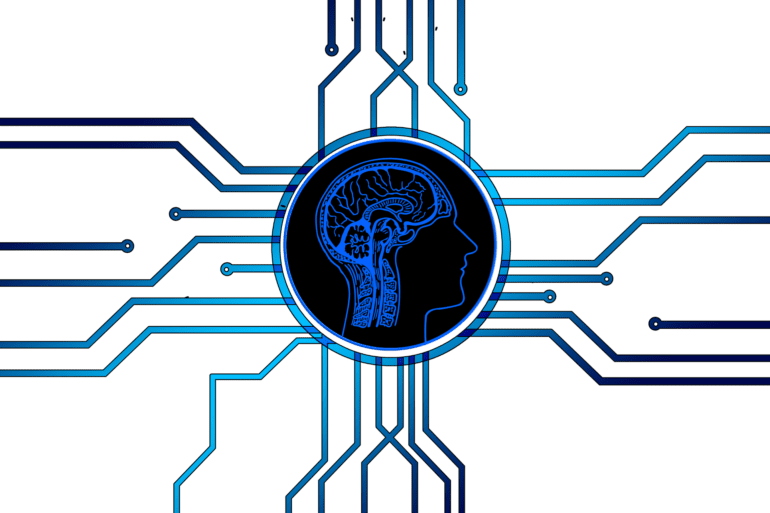TL;DR:
- Python is a popular choice among developers for artificial intelligence development.
- Python’s interpreted nature allows for the direct execution of code without translation into machine language, making it a suitable choice for use with virtual machines and emulators.
- Python is known for its high-level programming capabilities, including support for arrays, variables, objects, complex arithmetic, and other abstract computer science concepts.
- Python’s dynamic type system and automated memory management allow for the use of a wide range of programming paradigms.
- Python’s open-source counterpart, CPython, is cross-platform compatible and rapidly gaining popularity.
- Python’s accessibility and low learning curve make it popular in the business world.
- Python has prebuilt libraries specifically designed for AI development, including Numpy, Scipy, and Pybrain.
- Python has a large community of programmers offering tutorials and forums, providing extensive support and resources for coders.
- Python’s versatility, including the ability to choose between scripting and OOP methods, makes it a compelling choice for AI development.
- Python’s IDE offers a convenient way to navigate and examine code, making it valuable for debugging.
Main AI News:
As the tech industry continues to evolve, the demand for proficient programming languages has skyrocketed. Among the top contenders, Python has firmly established itself as a staple for developers. Conceived by Guido Van Rossum in 1991, this language has since become a mainstay in the realm of artificial intelligence, alongside other heavyweights such as C++ and Java.
In the race to discover the ultimate language for AI and neural networks, Python has emerged as a clear front-runner. So, what exactly sets Python apart and makes it such a compelling choice for AI development? Let’s delve into the key factors that have solidified its position as one of the most captivating concepts in AI.
Advantages of Python in Artificial Intelligence
Python has established itself as a leading language in the field of artificial intelligence, offering numerous advantages over other programming languages. One of the key advantages is its interpreted nature, which allows for the direct execution of code without the need for translation into machine language. This makes it a suitable choice for use with virtual machines and emulators, providing flexibility and ease of use for developers.
In addition to its interpreted nature, Python is known for its high-level programming capabilities. This language supports arrays, variables, objects, complex arithmetic, and other abstract computer science concepts, making it a powerful tool for solving challenging programming problems.
Furthermore, Python’s dynamic type system and automated memory management enable the use of a wide range of programming paradigms, including procedural, imperative, object-oriented, and functional programming. This versatility makes it a versatile choice for developers, allowing them to adapt to changing project requirements and work in a variety of fields and technologies.
Another significant advantage of Python is its cross-platform compatibility. Python’s open-source counterpart, CPython, is rapidly gaining popularity and can be used on any operating system, making it a flexible choice for developers and organizations.
Python’s simplicity and ease of use make it a popular choice for artificial intelligence development. With a relatively low learning curve compared to other OOP languages, Python is accessible to a wide range of developers. This is reflected in its widespread use in the business world.
In addition to its accessibility, Python also boasts a wealth of prebuilt libraries specifically designed for AI development, including Numpy for scientific calculations, Scipy for high-end computation, and Pybrain for machine learning. These libraries make it easier for developers to tackle complex AI projects and streamline their workflow.
Another advantage of using Python in AI is the extensive support and resources available to developers. With a large community of Python programmers offering tutorials and forums, it is easier for coders to find guidance and support when working with Python.
Python’s versatility is another factor that makes it a compelling choice for AI development. As a platform-independent language, Python can be used on a variety of platforms and technologies with minimal modifications to the core coding principles. Additionally, Python offers the flexibility to choose between scripting and OOP methods, providing developers with greater control over their projects.
Finally, Python’s IDE offers a convenient way to navigate and examine code, making it a valuable tool for developers who are struggling with various algorithms. Overall, the combination of Python’s simplicity, prebuilt libraries, community support, versatility, and debugging tools make it an attractive choice for artificial intelligence development.
Conlcusion:
Python’s dominance as a leading language in the field of artificial intelligence is due to its various advantages over other programming languages. Its interpreted nature, high-level programming capabilities, dynamic type system, automated memory management, cross-platform compatibility, simplicity, accessibility, prebuilt libraries, community support, versatility, and debugging tools make it a compelling choice for AI development. The growing demand for proficient programming languages in the tech industry, coupled with Python’s numerous advantages, presents a significant opportunity for the market to continue its growth and development.

